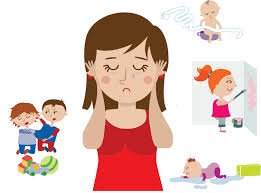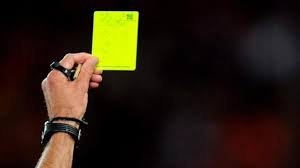Hello steemians! I am a psychologist and work specially in psychological care for children, which is why one of the main reasons for parents to consult is not knowing what to do since their children do not pay attention and have bad behavior at home and at school, because Today I bring you some recommendations of what to do and what not to do at home to improve the behavior of the little ones and thus be able to give them a healthy development.
The first thing we should know, is that the bad behavior in children can be due to multiple causes, however, one of the most common is simply that parents do not know how to establish norms and limits, so they do not constitute themselves in the small as an authority figure, and if so, obviously they will NOT meet the standards at home or at school. So let's start!

Picture taken for www.diariodeunamamapedagoga.com
WHAT DO NOT WE HAVE TO DO?
1.- We should not hit the children: in many countries it is in some way or another described and sanctioned in the law to hit a child, but why? Every time we hit the children we are giving an invitation to violence and we show our children that violence is a legitimate way, that is, viable, to solve problems, which, as adults, we know is NOT so. In addition to that, we create a wound in their healthy development since a mom or a dad who loves, cannot hit me, is the same logic that adults use "who loves you does not hit you", and since the children are in the process of evolutionary, intellectual and emotional development, they cannot integrate in their thinking that even though my mother loves me she hits me, because it IS NOT THAT way, if you hit me you do not love me!. Which causes the child to behave in a disruptive way in more spaces, turn a deaf ear to the rules and limits and of course his behavior gets worse.

Picture taken for www.barbarabravospsicologos.com
2.- We should not negotiate with children: do not misunderstand me, there are things that are good to negotiate with young children, but when it comes to a norm you should NOT negotiate, neither do adults negotiate with the law, it is the same!. And what do I mean by negotiating?, Many times we listen to mom or dad saying "well it's good that this time you eat the cookie, but only for this time", NO mom is not right, NO dad is not right!, and why not ?, because in the child it is established that then the rules are flexible, and that depending on the situation I fulfill it or I do not fulfill it, and it is not, the rules must be fulfilled always and at all times, or is well just for once you eat the light, or is it okay just for once you steal?, is not it true?, Well the same happens when we are setting standards in our little ones, it is not right "just for this time" The rules should always be imposed by parents or responsible adults and we should not skip them once because we are tired or because we have already scolded so much that I cannot do it anymore, I know that many times it happens but all we do is confuse our little one and that He or she thinks that the rules are flexible and I can fulfill them whenever I want and when I do not want to not fulfill with them. This is a classic error in many parents, and it is a fundamental cause of bad behavior in children.
3.- We must not use certain words: many times we use "inadequate" words when scolding or imposing a rule on our children, the first is the simplest and the most difficult to stop using. The "NO": when we use the word "no" we are undoubtedly implying to the child that it is something negative, and that only makes it more tempting if the child has not consolidated in his behavioral patterns the compliance of norms correctly, because as I said before, if the child believes that the rules are flexible, and dad and mom are not people of authority, because they do not want me, then, to tell me that "NO" means "YES". Therefore, the best option is to always give alternative behaviors to the child, instead of saying: "do not jump on the bed", it is better to say "better get off and jump on the floor" or "stop jumping".
Another word we must avoid is, "punishment", punishment is like the monstrous, a terrible thing that comes to make me unhappy, and usually in Latin American countries the punishments are quite traumatic, so it is better to use the word "sanction" , yes it can be said that it is a euphemism, but it makes the difference, the sanction as I will explain later can be really useful and not traumatic.

Picture taken for www.firmalibertad.blogspot.com
WHAT DO WE HAVE TO DO?
1.- The first thing we must be clear about is that to impose norms we must not only punish, but also and it is much more important we must reward the child. At this moment you will be asking yourself and how I will do that? Well, you have to reward what the kid do well, reward good behavior, it is one of the simplest and most effective ways to make children comply the rules, because by rewarding the behavior that you expect you are telling the child not only how to behave but also that you love him, and the demonstration of affection is extremely important in the development of the child.
When we say this to the parents, they automatically think that it is about spending more money and buying goodies and sweets to the child without ceasing, because no, the reward of the expected behavior of the child must be with things that do not involve an extra expense at home. and with very simple things, from a "you're doing very well", "I congratulate you for your good grade in school" until you just let him see his favorite little comic, or give him a little more time in the park over the weekend. When we reward a behavior we must always be specific in what we are rewarding and say to the child: "like today you helped me with the purchase in the super I congratulate you, you did it very well and now you are going to take your favorite orange juice". In this way the child can associate that if I help mom or dad make the purchase in the super instead of crying and screaming all the time they will give me something that I like because I'm doing well. And it is to that association of ideas that we want to reach.

Picture taken for www.pixabay.com
2.- To sanction the behaviors that we do not want or that are wrong: as we must reward, we must sanction, and here are two types of sanctions that we must implement:
The first is as simple as investing the prizes for sanctions, that is, when the child has a behavior that we do not expect or do something wrong, we must give him alternatives of what we want him to do, as I explained before, and tell him "when you jump on the bed the bed is damaged and you cannot sleep in it, it's better to jump on the floor", in this way, with a simple, short explanation and showing the negative consequences of his behavior and alternative behavior, the child will associate that what he is doing is not right and should not repeat it. Of course, this only applies to minor behaviors, such as the one in the example; When our little one does something more serious we must implement the second type of sanction.
Time out, is a very simple and easy to implement technique. It is extremely important that you know three things about this technique: the first, it should only be a few minutes, and it should be in relation to the age of the child, that is, a child of 03 years old, should be a MAXIMUM time out of 03 minutes; 01 minute per year of life, and that must be the maximum time. The time must be imposed due to the severity of the behavior. The second thing to keep in mind, is that it should be a time for reflection on the behavior carried out, that is, when sending it to the time the child will cry without stopping and the first thing is to wait for it to calm down, explaining that the sanction is consequence of his bad behavior and is there so that he understands that he should not do it again. That is why it is a time for reflection. I know many parents will say this does not work, but I must tell you that it is a highly approved technique. The third thing to know is that, the time out should be as follows: in a space of the house where the child has few stimuli, that is, where he cannot watch the TV, or the computer, or play with his cart or doll, we will put a chair or stool for the child, who must always be there, and there he will spend time out.

Picture taken for wwww.iusport.com
3.- Parents do not contradict each other: many times Papa establishes a norm and mom establishes another norm completely contrary, the most important thing, when raising a child and establishing norms is that the parents do not contradict each other, this happens a lot in Separated parents or divorced, they must have the same rules and routines in both houses and always fulfill them perfectly. Since otherwise, the message we send to our children is that the rules are flexible and “with the police must behave well, but not with the teacher."
4.- Whenever we are going to give a rule, instruction or set limits in our children we must do it with simple words, that they can understand for their age, without giving many explanations because the time of attention of the children is limited and we must make the most of it, otherwise we will get bored and our great speech will not help. For you to have an idea from 02 to 03 years, the child is expected to follow instructions of 01 single step with supervision, from 04 to 05 years the child is expected to follow instructions of 02 steps with supervision, and from 06 to 07 years onwards The child is expected to follow instructions from 03 steps onwards without supervision. Therefore, we cannot tell a child of 4 years to go to the room, put on his shirt and shoes, because he will not be able to keep all the information in his head, so we must do it by parts and with our supervision.
With these simple recommendations, our children will begin to take their parents as figures of authority, care and protection, remember that the most important thing for children is their parents, and we should be their example in life. I hope this post has been of your help, if you liked do not hesitate to vote and if you have any comments or suggestions do not hesitate to leave it here that I will gladly answer your questions or complaints.
Hi, thank you for sharing your expertise on this subject. There are still many parents that think hitting a child is the best option. I've read about childhood traumas, and one of those is hitting your child. As a child grows older, he/she will develop a lot of anxiety and resentment, making it difficult to cope with certain situations in his or her life. Anyway, I followed you.
Unfortunately even parents have not understood the importance of showing love to our children, and when we hit them is not a way to do it, certainly many traumatic feelings are created in children when we do it, that's why I have given some recommendations to establish norms in a healthy way Thank you very much for reading the post and leave your comment! I hope that the next ones are also to your expectation.
You're welcome. People should understand how this is so wrong and the serious consequences that come from it.
I've worked with 100's of families and one of the most successful first approaches is to address the diet. High sugar diets (carbs) contribute to bad behavior. The child simply doesn't feel good. The other contributors are MSG (monosodium glutamate) which is an excitotoxin and disrupts the neurotransmitters. Aspartame (artificial sweetener) is found in many processed foods and even chewing gum. MSG and aspartame can create anxiety, nervousness, agitation and depression.
Although you've given some good tips here, one of the first that should be addressed is diet. This is something that both parents and child can work together in addressing. Seeing results in just 2 weeks can add value to the family unit as well as having no risk of medication intervention.
Thanks you very much, for your suggestion! It's true, the diet have an important places in the behavior of a child, and most of it, like you said the sugar and other components that create anxiety and motor agitation. I''ve planed to talk about it in another post, because, is a really extensive theme and I want to do it with a nutricionist, and in this way, give a good recommendation to the familys with the combination of the right proffesionals.